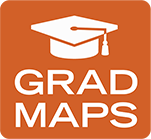| |
Feb 02, 2026
|
|
|
|
|
2022-23 Catalog ARCHIVED CATALOG: Content may no longer be accurate.
Computer Science Teaching (BS)
|
|
- Program Prerequisite: Not required for Computer Science and Computer Science Customized majors. Computer Science Teaching majors must meet the Teacher Education admission and licensure requirements (see Department of Teacher Education ).
- Minor: Not required.
- Grade Requirements: An overall GPA of 2.90 is required in courses required for this major. Also refer to the general grade requirements for graduation under Degree Requirements.
- Credit Hour Requirements: A total of 125 semester credit hours is required for graduation; 60 hours are required within the major, plus the credits required by the Department of Teacher Education . Forty-four upper-division credit hours are required (courses numbered 3000 and above).
- Program Code: 8091BS
- CIPC: 131321
Advisement
Computer Science Teaching majors are strongly encouraged to meet with the advisor at least annually for course and program advisement. Call 801-626-7929 for more information or to schedule an appointment. Computer Science Teaching majors are also encouraged to meet with a Jerry and Vickie Moyes College of Education advisor (call 801-626-6269). (Also refer to the Department Advisor Referral List.)
 Use Grad MAPs to plan your degree Use Grad MAPs to plan your degree
Admission Requirements
Declare your program of study. Teaching majors must meet the Teacher Education admission and licensure requirements (see Department of Teacher Education ).
General Education
Refer to pages Degree Requirements for Bachelor of Science requirements.
Program Learning Outcomes
- An ability to apply knowledge of computing and mathematics appropriate to the program’s student outcomes and to the discipline
- An ability to analyze a problem, and identify and define the computing requirements appropriate to its solution
- An ability to design, implement, and evaluate a computer-based system, process, component, or program to meet desired needs
- An ability to function effectively on teams to accomplish a common goal
- An understanding of professional, ethical, legal, security and social issues and responsibilities
- An ability to communicate effectively with a range of audiences
- An ability to analyze the local and global impact of computing on individuals, organizations, and society
- Recognition of the need for and an ability to engage in continuing professional development
- An ability to use current techniques, skills, and tools necessary for computing practice.
- An ability to apply mathematical foundations, algorithmic principles, and computer science theory in the modeling and design of computer-based systems in a way that demonstrates comprehension of the tradeoffs involved in design choices.
- An ability to apply design and development principles in the construction of software systems of varying complexity.
|
Computer Science Teaching Major Course Requirements for BS Degree
Computer Science Courses Required (60 credit hours)
Support Courses Required (16 credit hours)
Note:
Students must also complete the Teacher Education Licensure Program. |
|
|